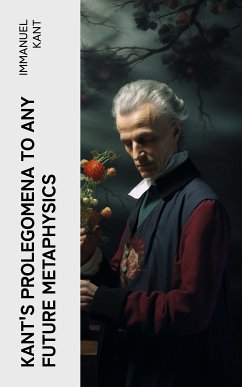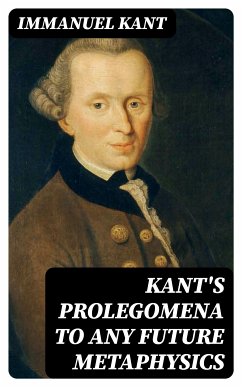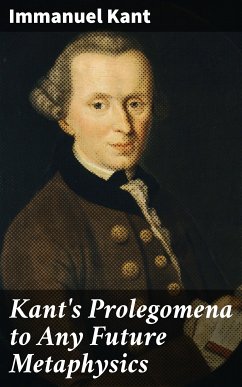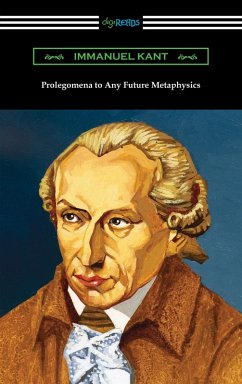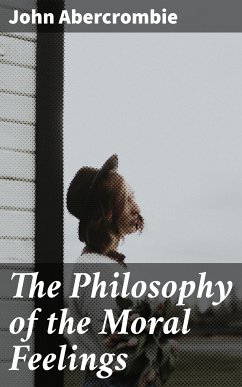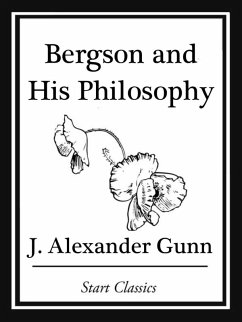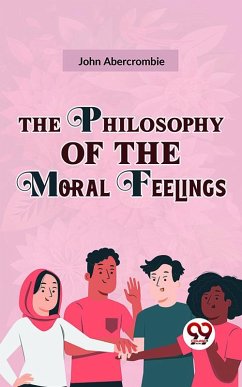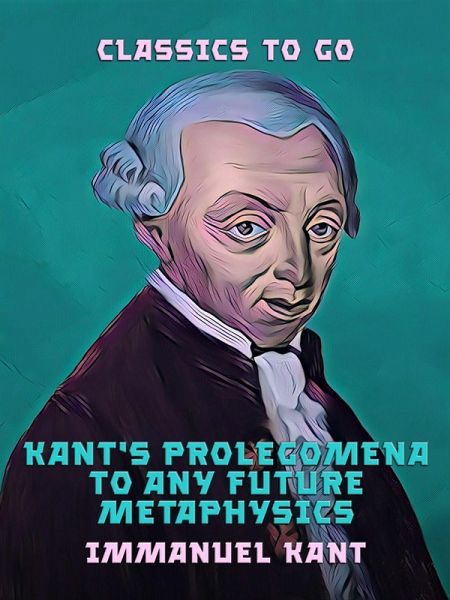
Kant's Prolegomena to Any Future Metaphysics (eBook, ePUB)

PAYBACK Punkte
0 °P sammeln!
Prompted by Hume''s skepticism, Kant addresses the question of whether and how metaphysics is possible. Metaphysicians have yet to agree on one definite proposition, or even to establish a basis for agreement upon judgments. Kant distinguishes between a priori and a posteriori cognitions and between analytic and synthetic judgments. Knowledge we gain from experience is a posteriori, and what we can know independent of experience is a priori. A synthetic judgment is one whose predicate contains information not contained in the subject, and an analytic judgment is one whose predicate is a mere a...
Prompted by Hume''s skepticism, Kant addresses the question of whether and how metaphysics is possible. Metaphysicians have yet to agree on one definite proposition, or even to establish a basis for agreement upon judgments. Kant distinguishes between a priori and a posteriori cognitions and between analytic and synthetic judgments. Knowledge we gain from experience is a posteriori, and what we can know independent of experience is a priori. A synthetic judgment is one whose predicate contains information not contained in the subject, and an analytic judgment is one whose predicate is a mere analysis of the subject. Kant claims that mathematics, natural science, and metaphysics all lay claim to synthetic a priori propositions-propositions that are necessarily but not trivially true, and can be known prior to experience. Since mathematics and pure natural science are well-established fields, he proposes to examine how their synthetic truths are possible a priori in the hope that this examination will shed light on the possibility of metaphysics as a science.
Dieser Download kann aus rechtlichen Gründen nur mit Rechnungsadresse in A, B, BG, CY, CZ, D, DK, EW, E, FIN, F, GR, HR, H, IRL, I, LT, L, LR, M, NL, PL, P, R, S, SLO, SK ausgeliefert werden.





